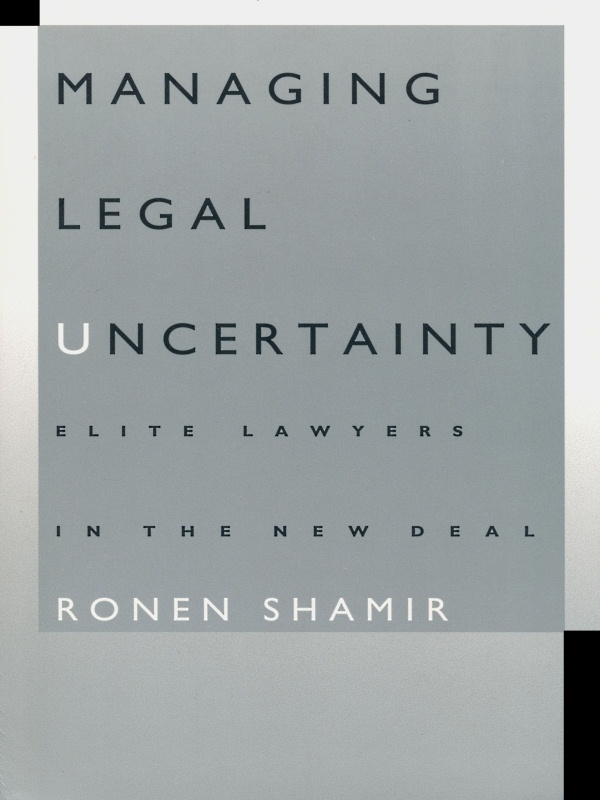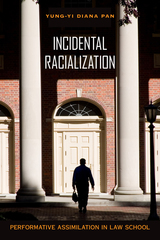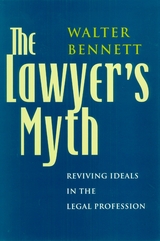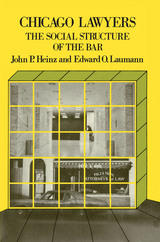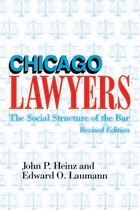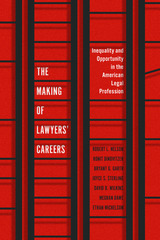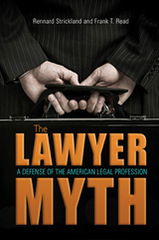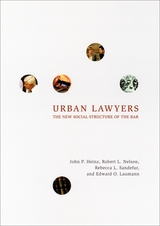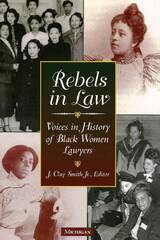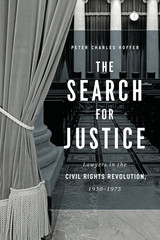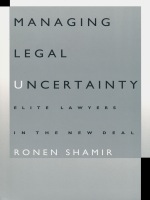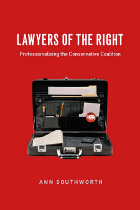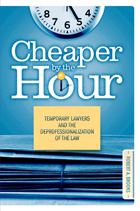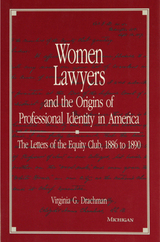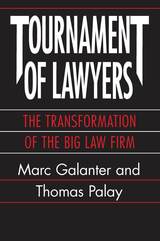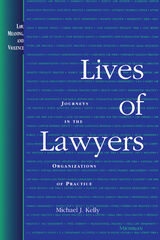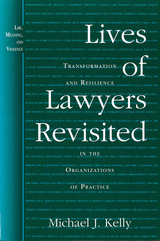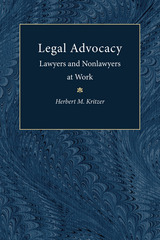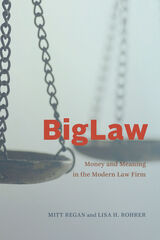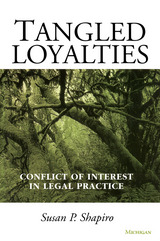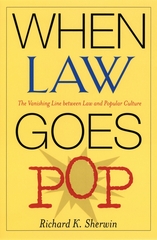Managing Legal Uncertainty: Elite Lawyers in the New Deal
Duke University Press, 1995
Cloth: 978-0-8223-1650-3 | Paper: 978-0-8223-1662-6 | eISBN: 978-0-8223-7966-9 (standard)
Library of Congress Classification KF299.I5S53 1995
Dewey Decimal Classification 340.115
Cloth: 978-0-8223-1650-3 | Paper: 978-0-8223-1662-6 | eISBN: 978-0-8223-7966-9 (standard)
Library of Congress Classification KF299.I5S53 1995
Dewey Decimal Classification 340.115
ABOUT THIS BOOK | AUTHOR BIOGRAPHY | REVIEWS | REQUEST ACCESSIBLE FILE
ABOUT THIS BOOK
With the New Deal came a dramatic expansion of the American regulatory state. Threatening to undermine many of the traditional roles of the legal system and its actors by establishing a system of administrative law, the new emphasis on federal legislation as a form of social and economic planning ushered in an era of "legal uncertainty." In this study Ronen Shamir explores how elite corporate lawyers and the American Bar Association clashed with academic legal realists over the constitutionality of the New Deal’s legislative program.
Applying the insights of Weber and Bourdieu to the sociology of the legal profession, Shamir shows that elite members of the bar had a keen self-interest in blocking the expansion of administrative law. He dismisses as oversimplified the view that elite lawyers were "hired guns" who argued that New Deal legislation was unconstitutional solely because of their duty to represent their capitalist clients. Instead, Shamir suggests, their alignment with the capitalist class was an incidental result of their attempt to articulate their vision of the law as scientific, apolitical, and judicially oriented—and thereby to defend their own position within the law profession. The academic legal realists on the other side of the constitutional debates criticized the rigidity of the traditional judicial process and insisted that flexibility of interpretation and the uncertainty of legal outcomes was at the heart of the legal system. The author argues that many legal realists, encouraged by the experimental nature of the New Deal, seized an opportunity to improve on their marginal status within the legal profession by moving their discussions from academic circles to the national policy agenda.
Applying the insights of Weber and Bourdieu to the sociology of the legal profession, Shamir shows that elite members of the bar had a keen self-interest in blocking the expansion of administrative law. He dismisses as oversimplified the view that elite lawyers were "hired guns" who argued that New Deal legislation was unconstitutional solely because of their duty to represent their capitalist clients. Instead, Shamir suggests, their alignment with the capitalist class was an incidental result of their attempt to articulate their vision of the law as scientific, apolitical, and judicially oriented—and thereby to defend their own position within the law profession. The academic legal realists on the other side of the constitutional debates criticized the rigidity of the traditional judicial process and insisted that flexibility of interpretation and the uncertainty of legal outcomes was at the heart of the legal system. The author argues that many legal realists, encouraged by the experimental nature of the New Deal, seized an opportunity to improve on their marginal status within the legal profession by moving their discussions from academic circles to the national policy agenda.
See other books on: 1933-1945 | Interpretation and construction | Legal Profession | New Deal, 1933-1939 | Sociological jurisprudence
See other titles from Duke University Press
